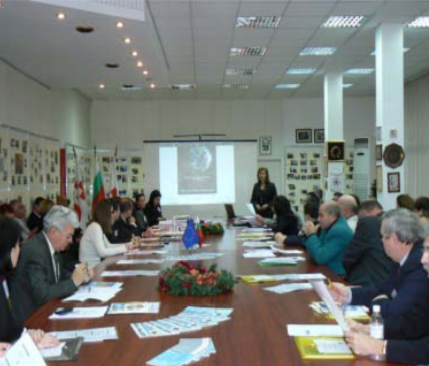
The Austrian, British, Bulgarian and French Red Cross Societies have just released comprehensive new studies on the legal frameworks for the receipt of international disaster relief in their countries.
Drawing on the Guidelines for the Domestic Facilitation and Regulation of International Disaster Relief and Initial Recovery Assistance (IDRL Guidelines), the new studies examine the degree to which the four countries are prepared to address the common regulatory barriers to speedy and effective international assistance. Each was compiled on the basis of research conducted on existing law, consultations with relevant stakeholders and observations drawn by participants in national workshops.
Neither the United Kingdom, nor France nor Austria have great experience in receiving outside assistance, and the studies in all three countries found few specific rules in existing law for how this might be regulated in case of future events.
According to Michael Meyer, Head of International Law at the British Red Cross “in general, the UK is less susceptible to (although not entirely exempt from) large-scale natural disasters, and has a robust domestic capacity to deal with such. The report therefore aimed to provide pragmatic and useful recommendations to domestic policy-makers and legislators charged with overseeing the UK civil contingencies framework, based on a realistic assessment of our possible future need for international relief."
Nazli Sannier, Deputy Desk Officer for Movement Relations at the French Red Cross, observed that France had similarly been able to cope with disasters itself in the past. If this were ever to change, however, “this study has shown that France does not have an adequate legal framework for receiving outside assistance.” The French Red Cross study provided a number of recommendations for improving the existing legal framework for international relief and for cooperation with civil society actors.
As a federal state, the applicable rules in Austria were particularly dispersed between the regional and national levels. According to Bernhard Schneider, Head of Training, Human Resources, Migration and Legal Affairs at the Austrian Red Cross (ARC), “the Austrian national IDRL study shows that disaster management legislation in Austria currently seems to meet most domestic Austrian requirements and in principle allows for assistance from other states. Some improvements would be advisable though, as the current legal basis for disaster relief does not appear to provide sufficiently clear regulations, either explicit or implicit, in particular concerning procedures in the case of disaster relief in Austria provided by foreign relief providers. As there are considerable differences between the various different federal state laws on disaster relief, a harmonisation of laws governing assistance from abroad would appear useful and could facilitate and expedite any necessary future support from abroad. One possible way to reach this aim could be through the conclusion of an agreement between the national and federal state governments in accordance with the Austrian Federal Constitutional Act and based on the IDRL Guidelines.”
Bulgaria, with much greater experience of receiving outside assistance, has more provisions in its existing law but also some remaining gaps. As noted by Yana Mihaylova, Director of the International Cooperation Department at the Bulgarian Red Cross, “in Bulgaria, in general, there exists a good experience on disaster relief and of receiving assistance. National legislation, relating to disaster assistance is relatively newly adopted, covering many relevant areas and reflecting some of the IDRL Guidelines. However there are some remaining gaps and some of the areas are not covered at national or at applicable EU level. In the course of the research some practical problems were identified, relating to implementation of the regulatory framework and to improving coordination between the institutions, dealing with disaster response.”
These studies were prepared as part of a wider regional project on the facilitation of cross-border assistance within the EU undertaken by the IFRC and the National Red Cross Societies of Austria, Bulgaria, France, Germany, The Netherlands and the United Kingdom. Pursuant to this project a study of EU-level regulations as well as analyses conducted in Germany and the Netherlands were published a few months ago.
A regional workshop to discuss all of the results is also being planned in Brussels in October.